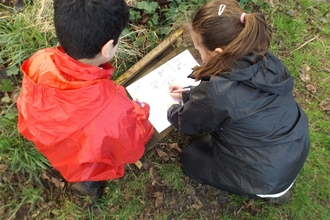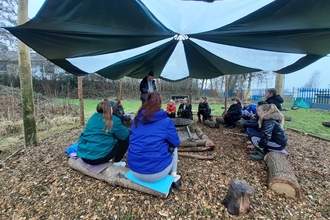Results of Nature Friendly Schools project recognised in school’s Ofsted report
Burlington Junior School is celebrating after receiving a ‘Good’ rating in its recent Ofsted report – one that praised its outdoor learning provision.
As part of a two-day inspection during the autumn 2021 term, staff and pupils participated in a range of interviews as well as having their lessons observed. In discussions with the inspector, teachers highlighted the significant impacts arising from the school’s participation in the Nature Friendly Schools project and the positive benefits it had on pupils’ mental health, wellbeing, attitude to learning, social skills and care and concern for the environment.
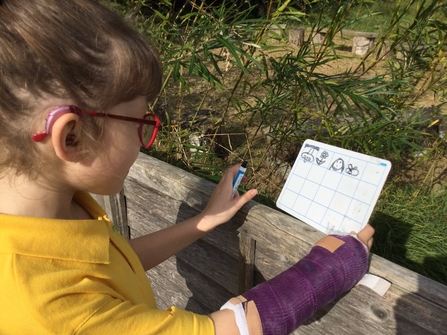
Burlington Junior School
Teacher Matthew Clark explained: “One of the foci for the visit was how we were providing for the social, emotional and mental health (SEMH) wellbeing of our pupils. This was a major issue for many pupils, and staff, after their prolonged periods of absence from school due to the lockdowns of the last two years.
“We explained how we had identified the pupils most in need of intervention and how groups for outdoor provision had been constructed to allow pupils to work within a supportive peer group. They observed how a member of our pastoral team ran an outdoor learning session which was planned according to the needs of pupils, identified from an assessment of their social and emotional skills, and linked to the curriculum.
“We demonstrated, through the recording of their outdoor learning and tracking of their SEMH development, how vulnerable pupils have particularly benefitted from the small group work outside the classroom to help and support their learning in lessons through increased engagement and subsequent attainment.”
The resulting Ofsted report highlighted the work of the Nature Friendly Schools project, stating: “Leaders encourage good mental health through nurture sessions and a ‘nature’ programme. As a result, pupils have a good knowledge of how to keep physically and mentally healthy.”
“Leaders are passionate about ensuring that all pupils receive the education they deserve. They have worked hard to improve the education on offer. They are clear about the school’s strengths and the areas that they need to develop. They strive to develop a curriculum that engages and inspires pupils.”
This is believed to be the first time that a nature-based intervention has been recognised as a contributing factor in an Ofsted report
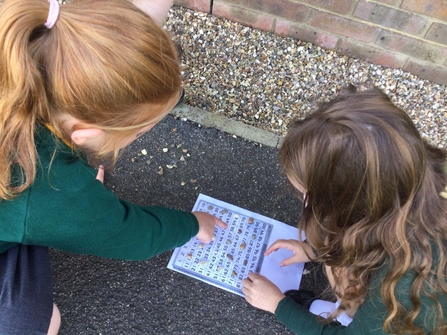
Burlington Junior School
Andrew Steele, Nature Friendly Schools Education Officer from Yorkshire Wildlife Trust, has worked closely with the school throughout the duration of the project, and beyond. He added: “The positive Ofsted report is richly deserved. The school has a brilliant team of staff who are dedicated to providing positive learning experiences for all pupils, and it has been a privilege to support them in establishing outdoor learning as a key element of their school ethos over the past eighteen months.
“We’ve worked on some really exciting initiatives as part of their Nature Friendly Schools journey, including creating a sheltered outdoor classroom to enable alfresco learning to go ahead whatever the weather, establishing a wildflower meadow as a relaxation and learning resource, integrating the Wildlife Trust’s annual 30 Days Wild challenge into the school curriculum and much more.
“It’s been clear to see, when we’ve been running sessions at the school, whether working with pupils to make and locate bumblebee nests or taking poetic inspiration from nature as part of a literacy lesson, how some pupils who struggle in a classroom setting really thrive when given the opportunity to step outside and engage all of their senses to work kinaesthetically. It’s been so rewarding to observe the positive impacts of the programme on children’s engagement and wellbeing in school, and to see this referenced by Ofsted as part of their evaluation was a huge step forward in ensuring all children can undertake learning outside the classroom during the school day.”
Since 2019, Nature Friendly Schools has supported the outdoor learning journey of more than 48,000 pupils and 720 teachers across more than 180 primary, secondary, special and alternative provision schools, embedding a sustainable and scalable model in all school types.
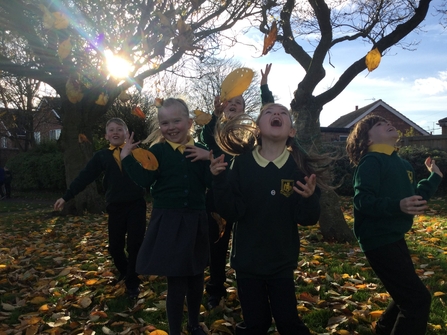
Burlington Junior School


